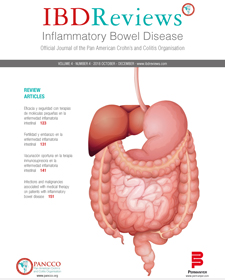Novel biomarkers in patients with inflammatory bowel disease
Contenido principal del artículo
Resumen
Inflammatory bowel disease (IBD) is an idiopathic and chronic inflammatory disorder of gastrointestinal tract which includes Crohn’s disease, ulcerative colitis, and indeterminate colitis. These disorders are characterized by cycles of remission and relapse evidenced by frequent fever, abdominal pain, and diarrhea. The differential diagnosis is performed by endoscopic, clinical, and histologic findings. The pharmacological therapy aim is to maintain long time remission and mucosal healing. For monitoring the efficacy of pharmacological therapy, an invasive colonoscopy study and clinical scores of clinical activity evaluation are the major tools employed. The colonoscopy is the better tool for determining the mucosa healing but is uncomfortable and less practical for the patients, and the possibility of perforation is a complication. Clinical activity evaluation does not let evaluate the mucosa healing and employs biochemical and clinical parameters like biochemical biomarkers. Biomarkers are useful in order to reduce invasive procedures such as endoscopy as well as in the prediction of relapses and in the tight monitoring for optimizing medical
therapy in IBD patients.

